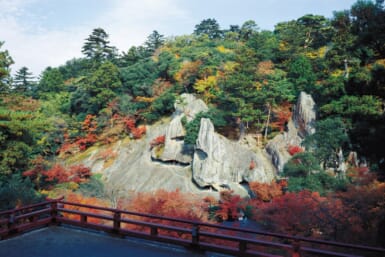by Ken Joseph Jr.
The other day I walked into the bank and was joking around with the manager. We were talking about heaven.
“When you get to heaven, they say you will have three surprises,” I said. “First, all the people who were supposed to be there are not there. Second, all the people who were not supposed to be there are there. The biggest surprise of all is that you made it!”
His reply: “Well, for sure, you won’t make it to heaven.”
I sat there, stunned. “What do you mean?” I asked.
“You are not a good person, so you will never make it to heaven,” he answered.
All kinds of thoughts began racing through my mind as I tried to understand what he was saying.
“Years ago I saw you on TV,” he said. “I called and got you on the telephone, and you were in such a hurry, I just hung up. Then you started coming into our bank. You are always in a hurry, and you come up to the counter, and all the girls are scared of you. I see you on TV, in the newspaper and all kinds of places, but you say one thing and do another.”
Wow!
I put everything on hold and spent a while talking to the bank manager where I have been going for years. He told me many things I had never realized or had even thought about before.
Most of what he was saying was right! I am always running in with a couple minutes to spare, with three portable telephones and a beeper all going at the same time and, yes, I am often without much consideration for the staff.
But their response? Always a nice and kind smile and a “Ken-san, how are you?” So whoever would have suspected they were not happy.
I thought they were the nicest people around and that I was one of their most loved—albeit poorest— customers. I was wrong!
I learned a good lesson that morning, and it is something that, if you plan to be in Japan for any length of time, will serve you well. It is the word “honne,” and it roughly means “the truth.” It is usually paired with its opposite, “tatemae” which means, literally, “what you say.”
There are many books written about these great mysteries of Japan, but it is really quite simple.
The bank manager and everyone else there always greets me with tatemae. The smiles, the greetings, the nice response. But how they really feel is their honne, or true feeling.
One of the main reasons Japanese drink so much is because it provides an excuse to do away with the tatemae and allows them to speak honne without getting into trouble. You can always blame it on the alcohol.
Finally, someone at the bank talked to me in honne.
There are two sides to it, though. When you talk to a person in honne, it means you feel you can trust them and they will listen. It is hard to take, but it is something for which to be grateful, as they finally think they can trust you.
Which is more important and counts the most? The honne, of course.
I speak a lot and always, after the speech, people come up and say something like, “How wonderful it was” or “My life was changed.” It is all tatemae. What really counts is when my manager comes and sternly says to me, “Too long, boring, points were unclear, and you cleared your throat the whole way through.” That’s honne.
Many seek to explain the honne and tatemae phenomenon as a deep cultural characteristic of the Japanese, but it is really quite simple. It is the natural way individuals become when they live in a totalitarian system that checks on everything they do.
In other words, when people live under systems that are always watching them, they learn to develop two personalities—the public and private. The public personality is always stoic and cheerful, while the private face is the honne or real face.
Whether you are in Japan for a few weeks or the rest of your life, the best and truest friends you will have will be those who talk to you in honne. Be careful of the smiles, the nice words and constant good works. The best friend you will ever have is the one who talks to you in honne—warts and all—and tells you how it really is.
Whether in business, friendships or just those in the neighborhood, ask those around you to talk to you in honne. It will open up a Japan to you that you never even knew existed. Once you can get past the tatemae, you will find some of the most honest, strong-willed, kind and stubborn, opinionated people in the world.
They only seem docile, obedient and pushovers— just because they live in a system where you get in trouble for speaking in honne. But just get them going in tatemae, and they won’t quit.
Like me, you will get some hard and straightforward talk but, as it says in Proverbs 15:17, “Better a dinner of herbs where love is than steak with hate.” That is, “Better a simple dinner at the corner shop with honne than a dinner out on the town with tatemae.”
Whether you are in Japan for a long or short time, make it your home. It is a wonderful country with some of the most precious people in the world. Love them, listen to them and watch them open up in honne. You will make a friend or two—or more—for life!
The guy at the bank? I took his words, went back and said a few “I’m sorrys” and, although I felt pretty dumb, I made a very dear friend. Try it!








_KRAACH-クリスタルバスソルト-385x257.jpg)